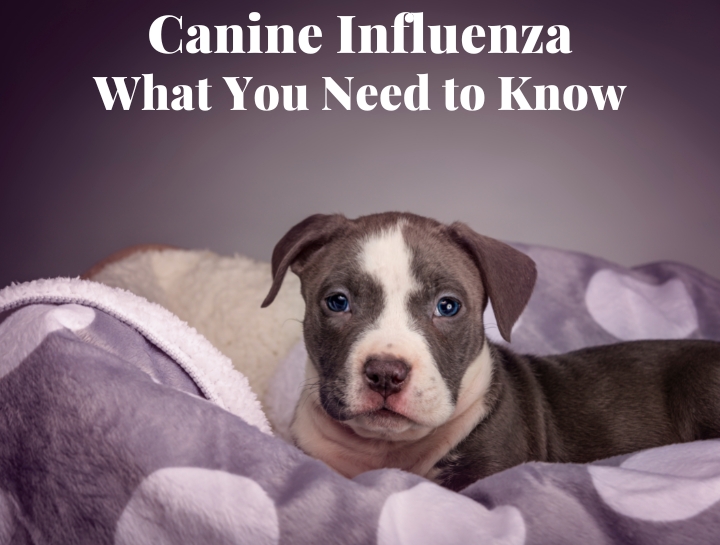Canine Influenza: What You Need to Know

There is a nationwide influenza virus that is affecting dogs. Learn what canine influenza is, what symptoms to look out for, how to protect your pup, and when to call your veterinarian.
What is Canine Influenza?
Canine influenza (CI), or dog flu, is a highly contagious viral infection that affects dogs. The canine influenza virus causes acute respiratory infections in dogs.
Is there a season for canine influenza?
There is no “season” for canine influenza. Infections can occur during any time of the year.
How is canine influenza spread?
Canine influenza is transmitted through:
- Contact with infected dogs
- Coughing, barking, and sneezing
- Shared objects such as food and water bowls, collars, and leashes
- People that have been in contact with infected dogs
It is important to clean and disinfect objects that have been in contact with an infected dog. People who have been in contact with an infected dog should wash their hands and clothing to avoid spreading the virus.
What are the symptoms to look out for?
The canine influenza virus infection often resembles canine infectious tracheobronchitis ("kennel cough"). Symptoms can include:
- Coughing
- Sneezing
- Nasal and/or ocular discharge
- Lethargy
- Loss of appetite
Severe cases may include a fever and increased respiratory rate.
How can dogs be protected from canine influenza?
In an effort to keep our dogs healthy, the canine influenza vaccine is recommended to any non-symptomatic dog that:
- Stays or is planning to stay at a boarding facility
- Travels via airplane
- Attends doggy daycare
- Goes to the groomer
- Has any social activity or high contact with other dogs (through a fence, on walks, at dog parks, etc.)
Some boarding facilities and groomers may begin to require the vaccine for stays or appointments.
Please note that the vaccine does not treat canine influenza. It is a preventative measure only for healthy pets. The vaccine requires a booster 2-4 weeks after the initial injection.
When to call your veterinarian?
If there are any concerns about your pet’s health, or your pet is showing signs of canine influenza, contact your veterinarian.
For more information:
Canine Influenza
Canine Influenza: Pet Owners' Guide
If you have any further questions about canine influenza or would like to schedule a visit, please call us at (928) 774-8731.
